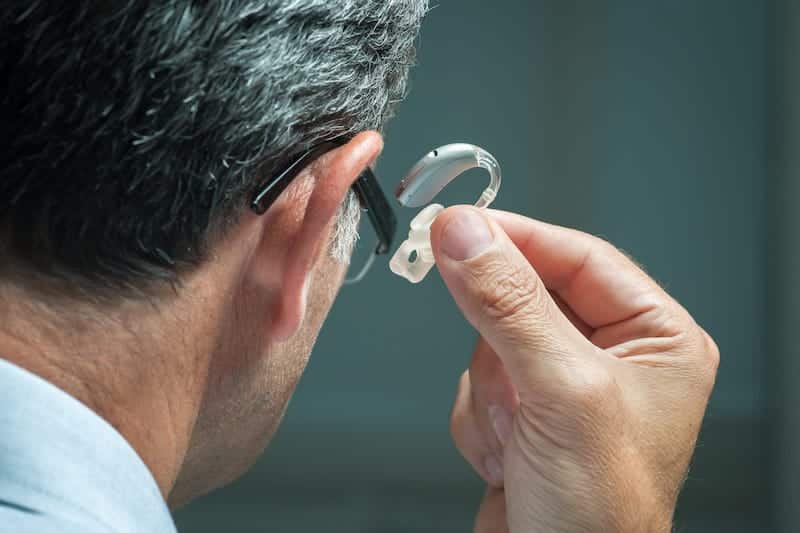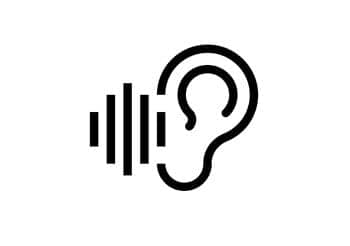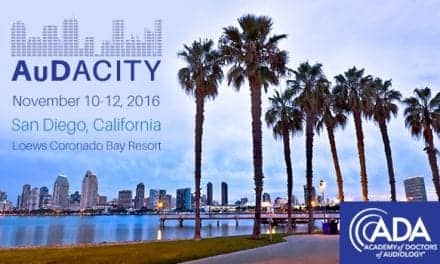With the first anniversary of the availability of over-the-counter hearing aids (OTCs) approaching on October 17, national polling commissioned by the American Speech-Language-Hearing Association (ASHA) finds that the devices have yet to catch on with the public.
Only 2% of American adults ages 40 and older who have hearing difficulties reported that they have purchased them, and only 4% reported that they are likely to purchase OTCs in the next year. The ASHA poll of 2,228 U.S. adults ages 40 and older was conducted by YouGov June 27 – July 7, 2023.
More than half of American adults ages 40 and older (56%) acknowledged lacking excellent hearing, but only 8% had been treated. The primary reason for not seeking help was the belief that the hearing difficulties being experienced weren’t “bad enough” to warrant care.
Nearly half (48%) of those with untreated hearing difficulties let their symptoms persist for more than 2 years. Yet nearly one third (30%) of those with hearing difficulties reported a negative impact on their quality of life. It is worth noting, too, that the poll results released today come on the heels of a study released earlier this summer showing that the use of hearing aids can significantly reduce cognitive decline. Left untreated in adults, hearing loss is also associated with increased risk of falls, depression, higher health care costs, and a variety of other medical, economic, and social repercussions.
Further reading: Study Shows Majority of Americans Neglect Hearing Health Despite Accessibility of Over-the-Counter Hearing Aids
“Hearing problems aren’t uniform. They vary and, thus, so does treatment,” says Janice R. Trent, AuD, CCC-A, ASHA Vice President for Audiology Practice. “The longer one waits to act, the greater and more costly problems can become. This is why ASHA advises the public to promptly seek a comprehensive hearing evaluation from certified audiologists before they do anything, be that purchasing an OTC or taking some other step. Insurance providers cover these evaluations, which ensure that care is appropriate and effective.”
Before and since OTCs became available, ASHA has focused on educating not only the public but also allied professionals about the devices, which are intended to be exclusively for persons ages 18 and older who have mild to moderate hearing loss. One especially troubling finding from ASHA’s polling is that just 16% of American adults ages 40 and older can correctly identify that OTC hearing aids are not for both children and adults—they’re for adults only.
Clearly, more education about OTCs is needed. Less than half of poll respondents perceive that there is a difference between sound amplifiers and hearing aids. Ads about OTCs fail to prominently mention whom they are exclusively for, and these ads falsely equate drugstore off-the-rack reading glasses with the devices. The glasses assist with light refraction for the eye. OTCs play a bigger role. They deliver sounds to a disordered auditory system, and doing that is more complex than what is happening with off-the-rack reading glasses. It is not simply a matter of increasing the volume of sound. What is concerning about these findings is that nearly half of respondents with hearing difficulties equated reading glasses with OTCs—and more than half of that group didn’t realize that hearing can be damaged if an OTC is over-amplified.
“Hearing health must be a priority, not something that is taken lightly, neglected, or treated inappropriately or without clear and complete information,” says Trent. “We will continue to educate the public and professionals about OTCs as well as [about] the importance of hearing health and taking prompt action when hearing difficulties arise.”





